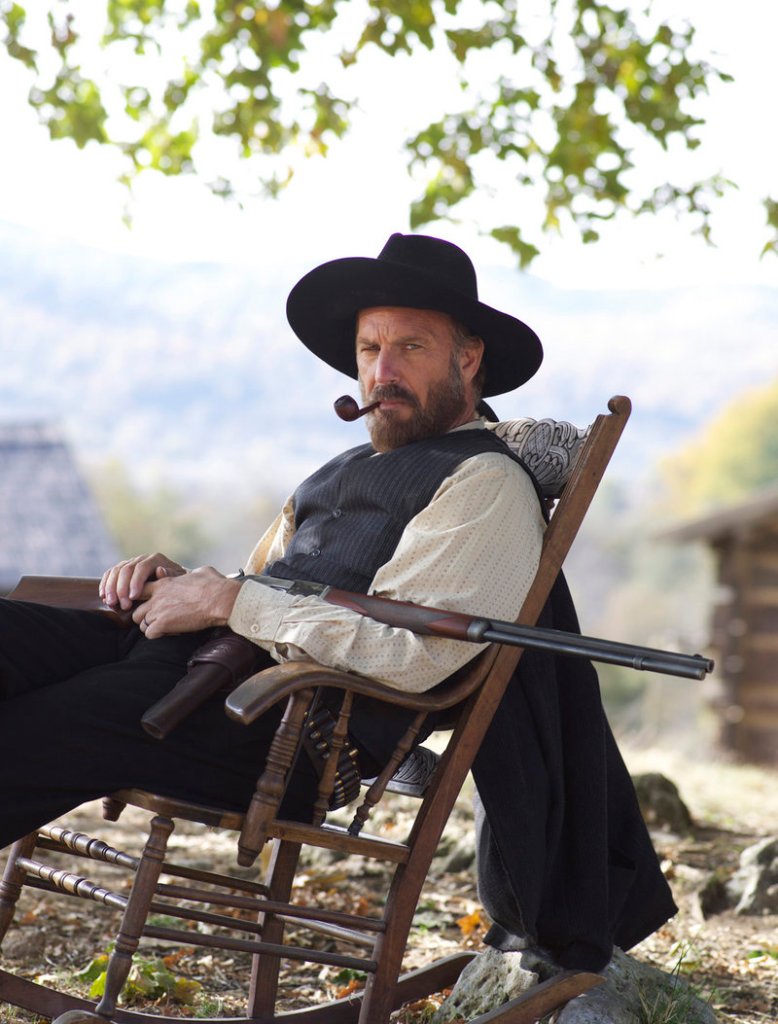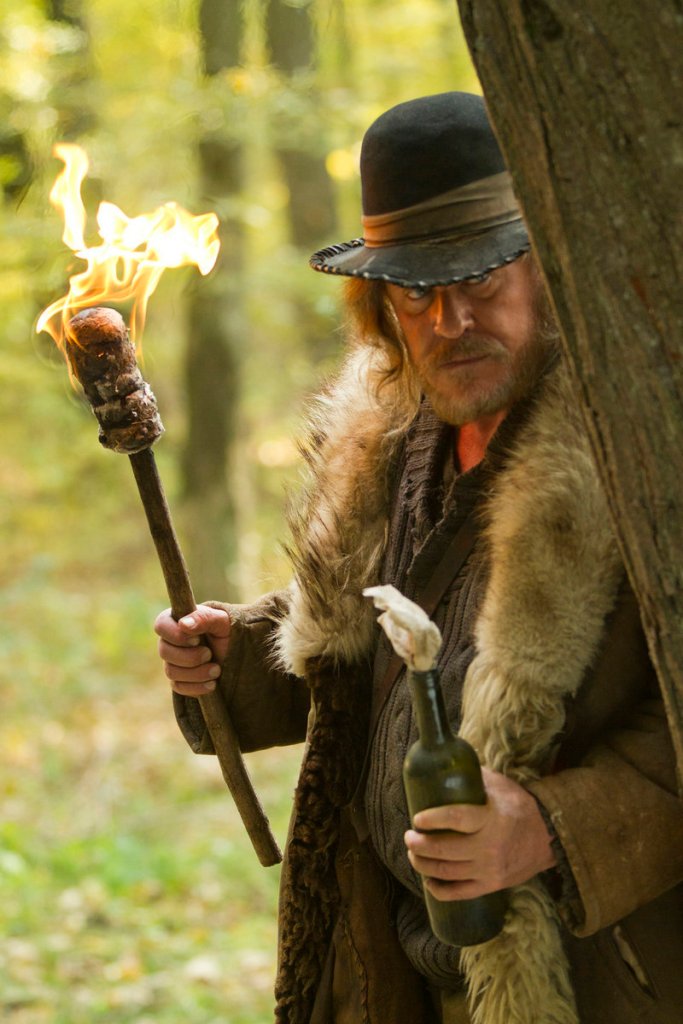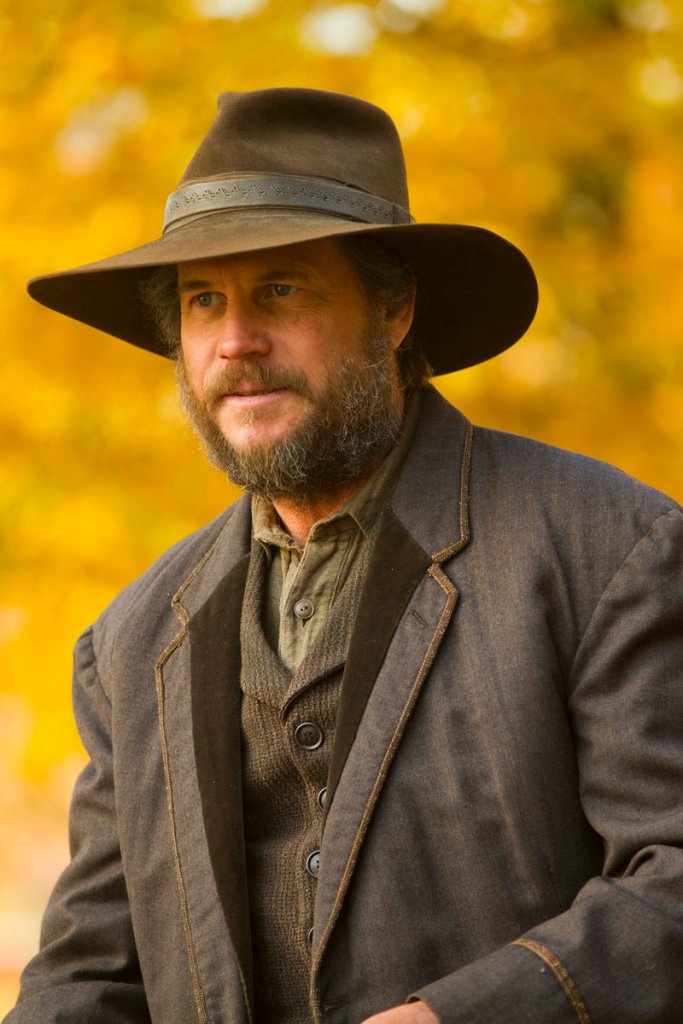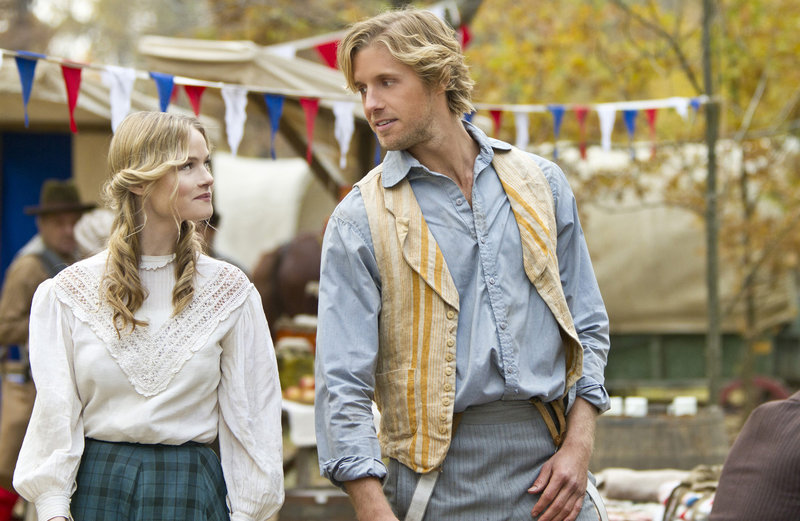For all the earnestness of their acting styles, Kevin Costner and Bill Paxton are often at their best when they’re playing unpleasant people, Costner as the killer-on-the-lam in Clint Eastwood’s “A Perfect World,” say, or Paxton as the psychotic dad in his own “Frailty.” Both actors have played heroes, but they’re more convincing as jerks, perhaps because it gives them the chance to play against expectations.
In “Hatfields & McCoys” — a grim three-part, six-hour History miniseries that has no heroes — Costner and Paxton get a couple of their darkest roles yet as, respectively, Devil Anse Hatfield and Randall McCoy, patriarchs of the infamous feuding families. Hidden behind forests of facial hair, the actors manage the neat trick of playing deadly serious roles and yet looking like they’re enjoying tearing into them.
And why not? These are meaty parts that provide plenty of excuses for scenery-chewing, with the characters’ backwoods backgrounds and unforgiving natures, their weariness and near-madness stemming all the way back to the Civil War, when Hatfield sows the seeds for bitterness by deciding that he’s had enough of fighting and deserts to start a lucrative lumber business. The anger between the two men infects their families, and when killings start happening, the factions begin having a civil war of their own, straddling the Kentucky-West Virginia border with the McCoys to the west and the Hatfields to the east.
In fact, all the veteran actors here — Mare Winningham as McCoy’s increasingly drained wife, Tom Berenger as Anse’s amoral and bloodthirsty Uncle Jim, Powers Boothe as Anse’s brother, a judge trying to stay above the fray while remaining loyal to his family — bring a lot of gravity to their roles. History is sliding this minseries in right before the Thursday deadline for 2011-2012 Emmy eligibility, and Berenger’s lusty performance and Winningham’s heartbreaking one would seem to make them good bets for supporting-actor nods.
This is a multigenerational story, though, and when the younger actors show up, it risks becoming a CW version of the feud — especially when we get to the Romeo-and-Juliet plot line of Johnse Hatfield (“One Tree Hill’s” Matt Barr) and Roseanna McCoy (“True Blood’s” Lindsay Pulsipher), who fall for each other in seemingly less time than it takes to load one of the families’ many rifles. And as Roseanna’s cousin Nancy (Jena Malone) becomes increasingly manipulative, it looks like we’re steering into soap-opera territory.
But writers Ted Mann and Ronald Parker, working from a story by Mann and Bill Kerby, have something much more bleak in mind, and the events of episode one don’t quite prepare you for the relentlessness of the second and third episodes, which become increasingly depressing as death begets death (or more often, deaths), as outsiders exploit the feud for their own purposes, and as the families begin falling apart from the inside as well as out.
Costner, who is one of the series’ producers, has had his own well-publicized feuds with director Kevin Reynolds (“Robin Hood: Prince of Thieves,” “Waterworld”), but Reynolds — who handled all three episodes — executes here, with well-staged battles and gunfights, and with death scenes that don’t play casually but resonate with the feeling of loss, pain and tragedy. Reynolds gets a big assist from director of photography Arthur Reinhart, who captures the foggy beauty of the Kentucky-West Virginia border and contrasts it with the carnage on display, and from John Debney and Tony Morales, who supply an eerie and elegiac score for the miniseries.
Considering that this is on a channel called History, even more questions of historical accuracy than usual are likely to arise after the miniseries hits the air. The writers do have appeared to played around with the facts some, while keeping the story rooted in some sort of truth.
Regardless of how well this works as history, though, it works as drama, although the gloom of it all might be too much for some viewers. Feuds fuel a lot of TV series, whether it’s the clashing factions of “Game of Thrones” or the modern backstabbing of the upcoming “Dallas” reboot. The feud in “Hatfields & McCoys” is dark enough to make you examine some of the disagreements you may be having in your own life.
Copy the Story Link
Send questions/comments to the editors.






Success. Please wait for the page to reload. If the page does not reload within 5 seconds, please refresh the page.
Enter your email and password to access comments.
Hi, to comment on stories you must . This profile is in addition to your subscription and website login.
Already have a commenting profile? .
Invalid username/password.
Please check your email to confirm and complete your registration.
Only subscribers are eligible to post comments. Please subscribe or login first for digital access. Here’s why.
Use the form below to reset your password. When you've submitted your account email, we will send an email with a reset code.